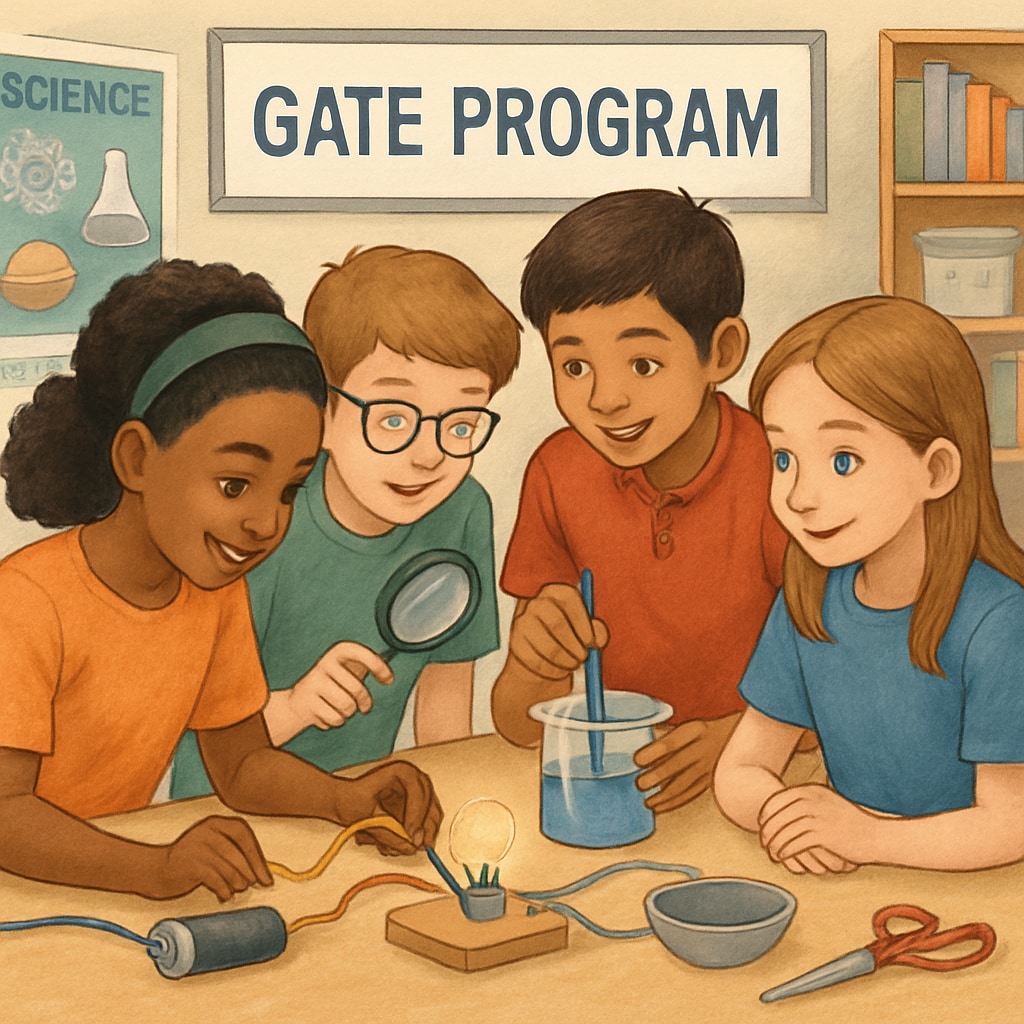When students excel academically, surpassing the expectations of their age group, traditional education systems often fail to meet their unique learning needs. These high-achieving learners, sometimes referred to as “gifted,” require a balance of appropriate challenges and support to fully unlock their potential. By leveraging tailored educational resources, exploring strategies like skipping grades, and considering specialized programs such as GATE (Gifted and Talented Education), parents and educators can create a thriving environment for these students without overwhelming their families.

Understanding the Needs of High-Achieving Students
High-achieving students often exhibit advanced cognitive abilities, faster learning speeds, and deeper interests in specific subjects. However, meeting their needs requires more than recognizing their talents—it demands intentional planning and resource allocation. For example, a traditional classroom curriculum may not be stimulating enough, leading to boredom, disengagement, or even behavioral challenges. To address this, educators and parents must consider options like differentiated instruction, enrichment activities, and individualized learning plans.
- Differentiated instruction: Adjusting lessons based on the student’s skill level.
- Enrichment activities: Offering extracurricular opportunities such as coding workshops or science competitions.
- Individualized learning plans: Crafting study paths that align with the student’s interests and strengths.
By proactively addressing these needs, students can remain engaged and motivated in their academic journey.
Exploring Educational Strategies: Skipping Grades and Beyond
One common strategy for academically advanced students is grade acceleration, commonly referred to as “skipping grades.” This approach allows students to move ahead in subjects where they demonstrate mastery, ensuring they remain challenged and engaged. While skipping grades can be effective, it is essential to evaluate the student’s emotional and social readiness alongside their academic abilities. Consulting with teachers, counselors, and educational psychologists may help determine whether this option is appropriate.
In addition to grade acceleration, other strategies include:
- Subject-specific acceleration: Allowing students to advance in a single subject while remaining in their current grade for others.
- Dual enrollment: Enrolling in college-level courses or advanced online programs while still in school.
- Gifted programs like GATE: Specialized curricula designed for high-achieving students to explore complex concepts.
These strategies ensure that students receive the intellectual stimulation they need without compromising their overall development.

Leveraging Educational Resources
Educational resources play a pivotal role in supporting high-achieving students. From online platforms to mentorship opportunities, the availability of diverse tools can make advanced learning accessible and enjoyable. For instance:
- Online learning platforms: Websites like Khan Academy and edX offer free courses in subjects ranging from mathematics to philosophy.
- Mentorship programs: Pairing students with professionals in their field of interest can foster real-world connections and inspiration.
- Community resources: Libraries, museums, and local organizations often host enrichment programs tailored to gifted learners.
By utilizing these resources, parents can help their children explore their passions while building essential skills for their future careers.
Balancing Challenges and Support
While providing educational challenges is essential, it is equally important to ensure that high-achieving students feel supported emotionally and socially. Encouraging participation in collaborative projects, extracurricular activities, and peer groups can foster a sense of belonging and prevent isolation. Additionally, open communication between parents, teachers, and students helps identify areas where further support may be needed.
Gifted students should also be encouraged to pursue hobbies and interests beyond academics to develop a well-rounded personality. For example, sports, art, or volunteering can provide opportunities to build interpersonal skills and resilience.
Conclusion: Unlocking Potential Through Tailored Education
High-achieving students have extraordinary potential, but realizing it requires thoughtful strategies and resources. By exploring options like skipping grades, participating in GATE programs, and leveraging educational tools, parents and educators can empower these students to thrive academically and emotionally. Ultimately, a balanced approach ensures that gifted learners receive the challenges they need while feeling supported every step of the way.
For more information about gifted education, visit National Association for Gifted Children or Edutopia.
Readability guidance: Short paragraphs, lists summarizing key points, and strategic use of transition words ensure clarity and engagement. Passive constructions are minimized to maintain an active voice throughout the article.


